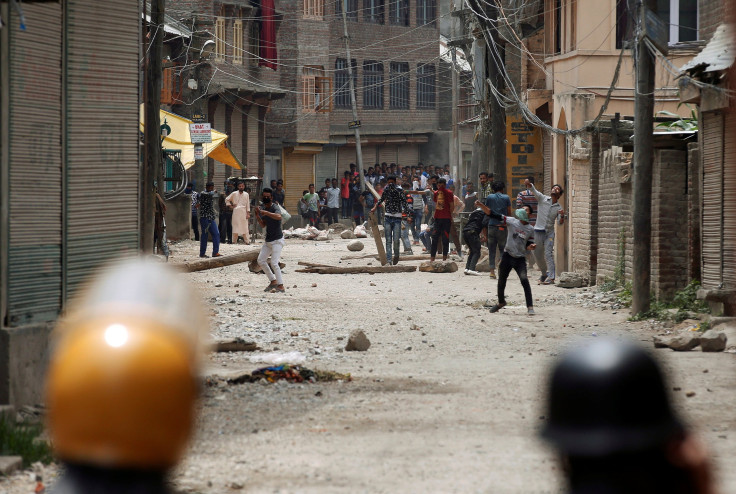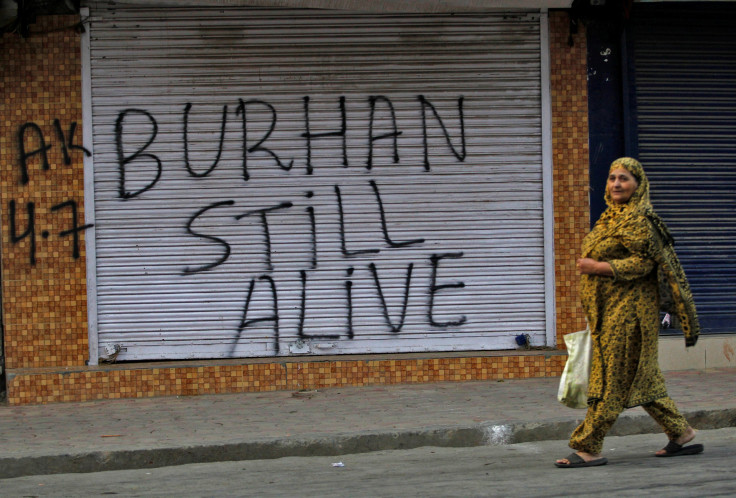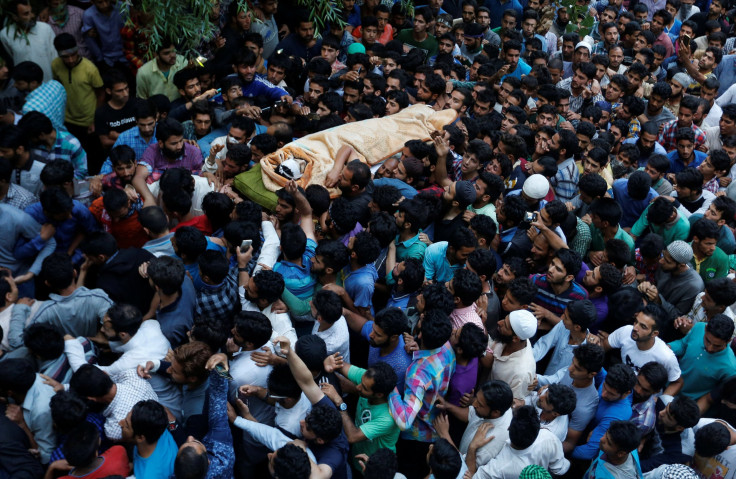India’s Kashmir Violence Leaves Dozens Dead, Hundreds Injured After Killing Of Militant Burhan Wani

The Indian state of Jammu and Kashmir entered its third day of curfew-like restrictions and separatist-sponsored strike Monday due to clashes between security forces and protesters sparked by the killing of separatist group Hizbul Mujahideen commander Burhan Wani in an encounter Friday.
The clashes left at least 20 dead and around 200 injured, according to reports, however there is no official confirmation on the death toll. Late Sunday, a crowd in the state's Jhelum city threw stones at a police officer's car and pushed it into a river. The officer drowned while in his car, reports said.
The state’s Chief Minister Mehbooba Mufti held a cabinet meeting Sunday when she asked the opposition parties and separatists to help restore peace. “We appeal to the separatists, parents of children pelting stones to help bring peace. ... We condemn civilian deaths,” government spokesman Naeem Akhtar reportedly said.
The government also promised to investigate any instance of disproportionate use of force by officers and urged people not to “become tools in the machinations of instigators of violence.”

The Muslim-majority state in northern India is at the center of an ongoing conflict between India and Pakistan for nearly 60 years.
In the wake of the current spate of violence, the Indian government cut electricity supply, blocked roads and the internet as part of the wider crackdown on protesters. According to India’s the Hindu newspaper, mobile phone services were suspended in the four districts of south Kashmir since Friday evening. Shops, private offices, business establishments and petrol pumps remained closed, while government offices and banks witnessed thin attendance.
Public transport was also shut down with only a few private vehicles out on the roads where there were no restrictions.
Yet, thousands of people defied the curfew in various parts of the state to pay homage to Wani at his funeral Saturday in his hometown, Tral, 26 miles from the state’s summer capital Srinagar. He was fatally shot by security forces and the police in Bundoora village in Kashmir's Anantnag district Friday. The 22-year-old reportedly became the face of Kashmiri resistance.

Inspector General Syed Javaid Mujtaba Gillani reportedly described Wani’s killing as the “biggest success against militants” in recent years. But Program Director of Jammu Kashmir Coalition of Civil Society in Srinagar, Khurram Parvez, called the death an extrajudicial killing alleging that the Indian government made no effort to arrest Wani.
“He joined [the Hizbul Mujahideen] because he was humiliated on the streets, his brother was tortured, this is where his resentment for the Indian government came from, and this is why Kashmiri's identified with him,” Parvez reportedly said. “He is being painted as a dreaded militant, but he was often very politically correct, [for instance] he spoke about Pandits returning in peace and assured Hindus that their pilgrimage would not be a target by militants.”
The imam of Srinagar's Jamia mosque and leader of a faction of the All Parties Hurriyat Conference, Mirwaiz Umar Farooq, told Al Jazeera that the lack of condemnation from India and international bodies indicate that “Kashmiri lives did not matter.”
“No political party or institution has condemned the violence because they don't feel the need ... They are so disconnected from this place," Farook said. Farooq and other separatist leaders like Syed Ali Shah and Mohammad Yasin Malik are either in custody or under house arrest.
Meanwhile, at least 15,000 Hindu pilgrims were stranded in Jammu, the state’s winter capital, waiting for an all-clear so they could continue with an annual pilgrimage that draws thousands of people each year, India’s local news network NDTV reported. The Amarnath pilgrimage begins near Srinagar and ends, after a five-day grueling hike, at a cave high up in the Himalayas that is considered one of holiest shrines of the Hindu faith.
“No yatri [pilgrim] will be allowed to move towards the Valley from Bhagwati Nagar Yatri Niwas in Jammu city today,” a senior officer reportedly said. “The yatra [pilgrimage] has been suspended due to the prevailing law and order situation in the Valley.”
© Copyright IBTimes 2025. All rights reserved.






















